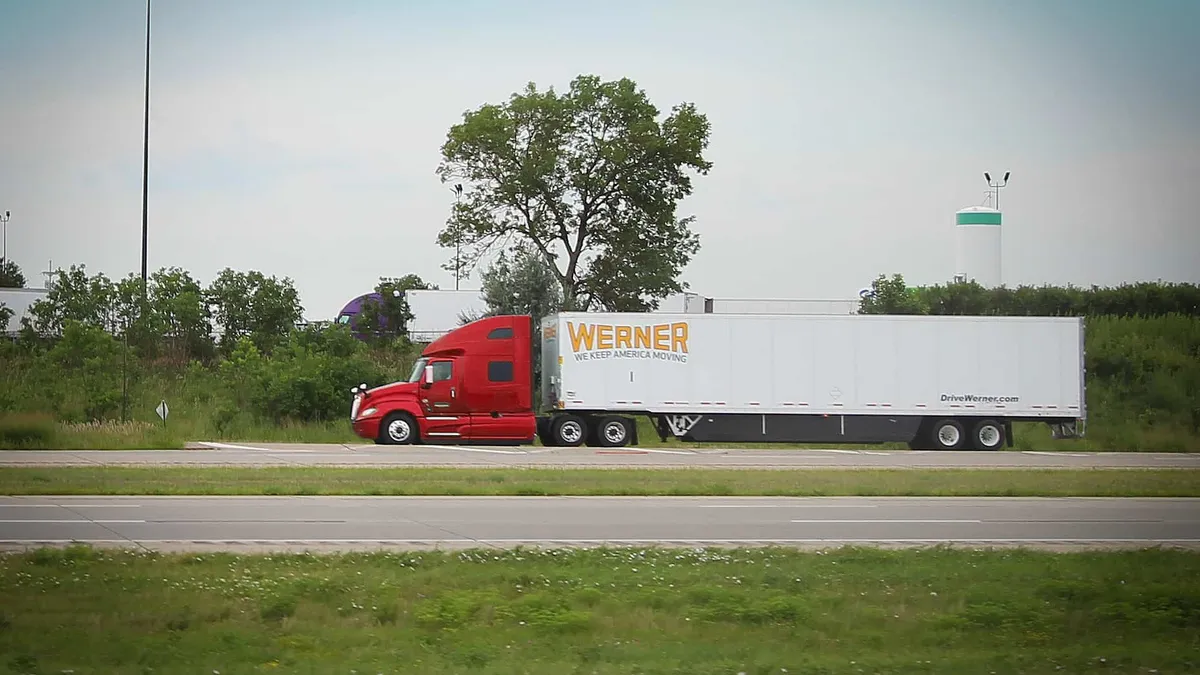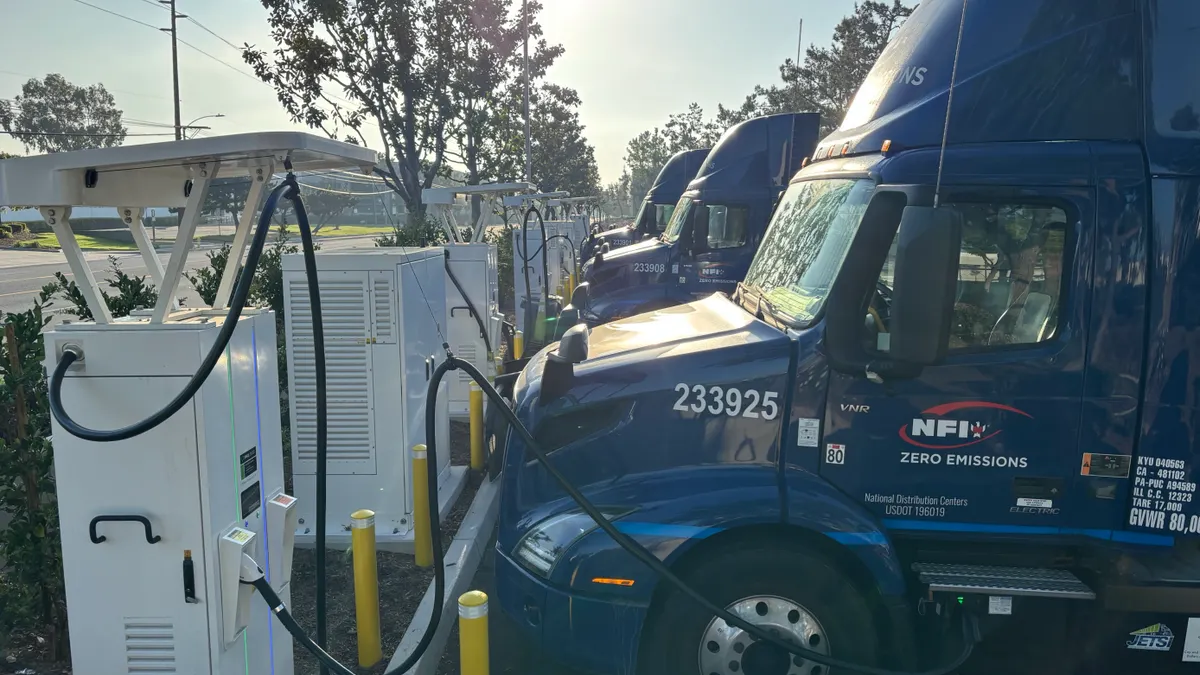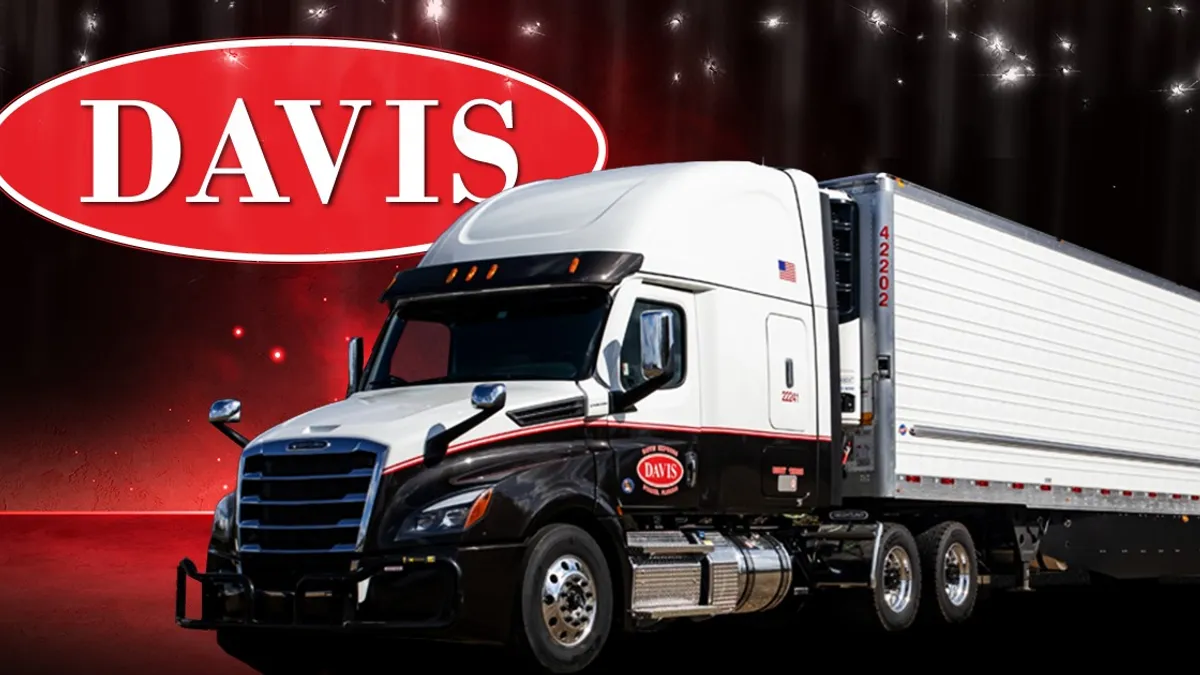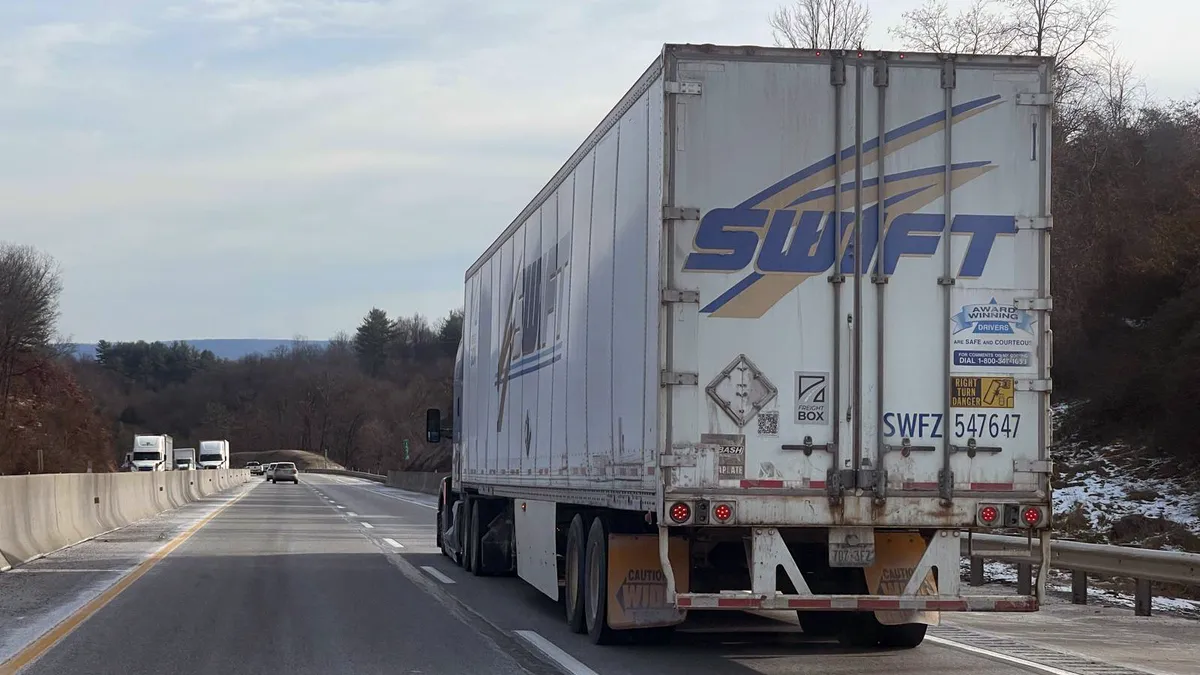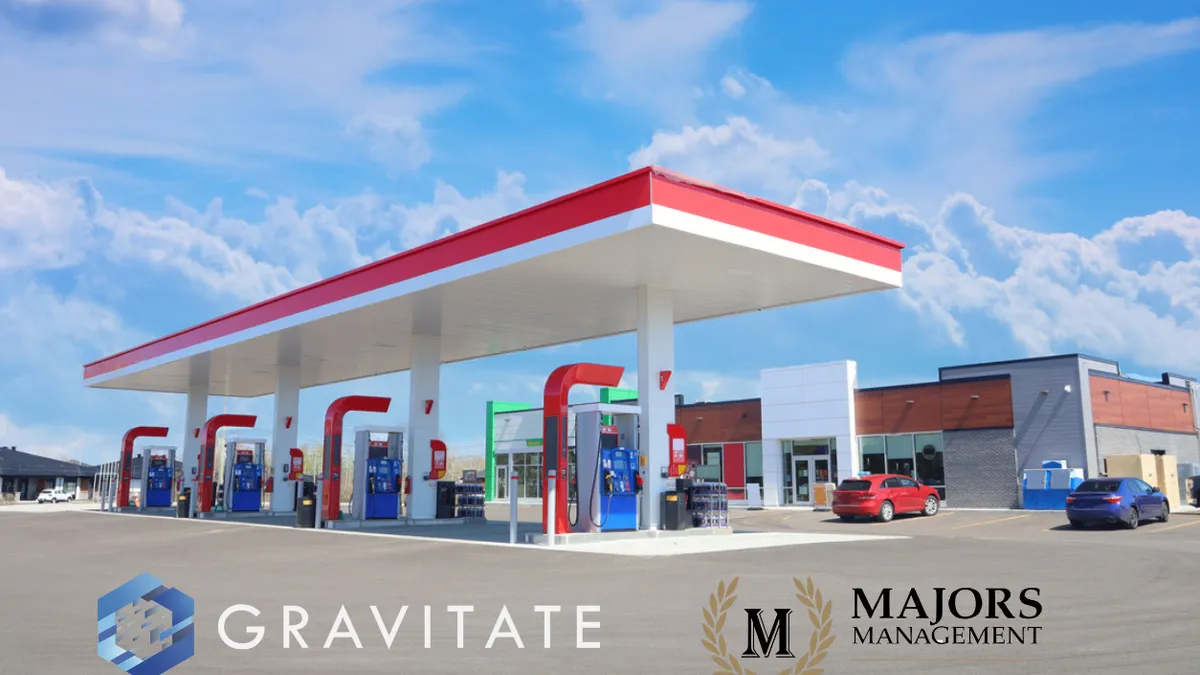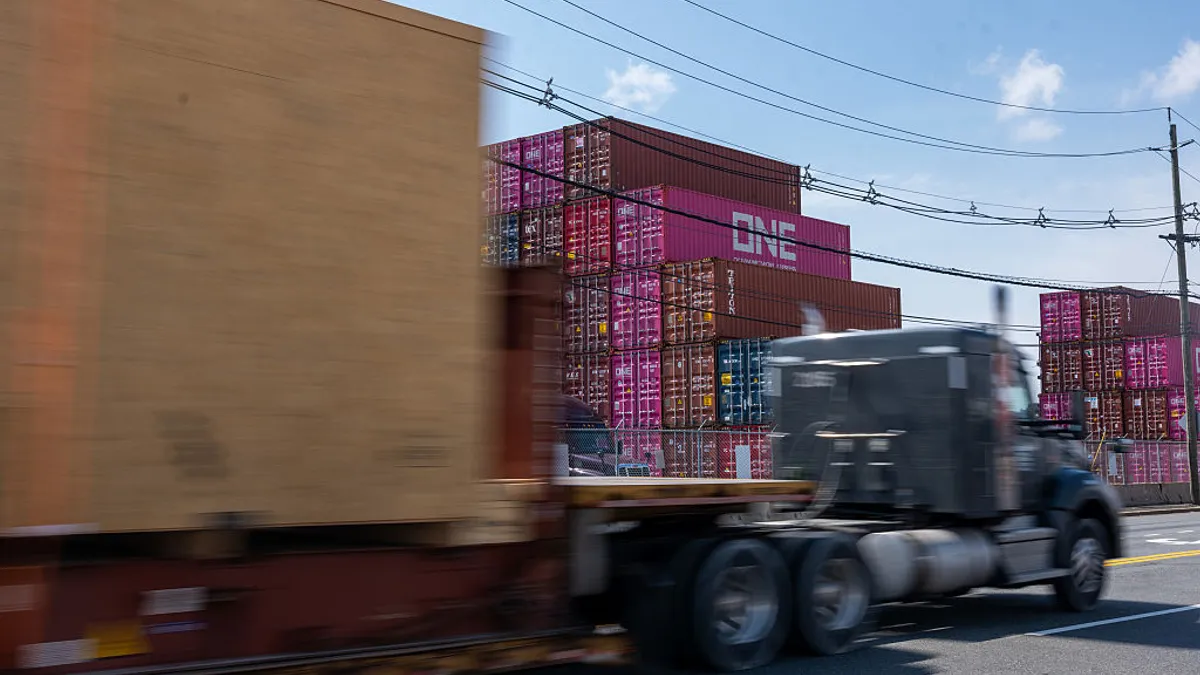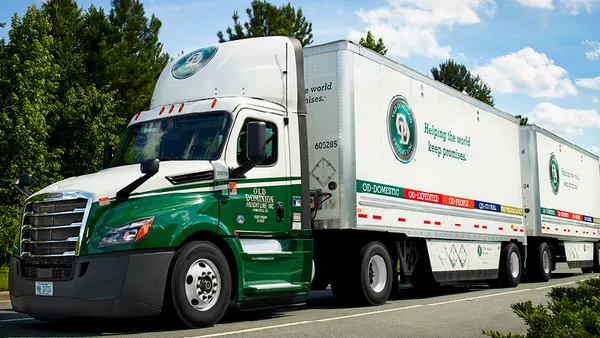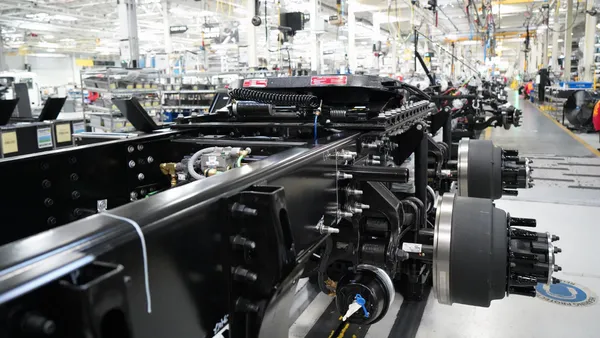As spot rates remain high and capacity can be just out of reach for some shipments, shippers are turning to for-hire fleets for dedicated carriage. And fleets are responding by adjusting their lanes.
Sixty-six percent of Werner's fleet is now dedicated, according to Craig Callahan, chief commercial officer and executive vice president.
"That continues to grow," said Callahan.
Across the nation, there are no particular regional hot spots for dedicated, according to Avery Vise, FTR vice president of trucking. Instead, anywhere spot rates have crept up is likely where dedicated is booming, he said.
"It's pretty widespread because the spot market is widespread," said Vise. "And that's what [shippers] are trying to work around."
Climbing spot rates push shippers to dedicated
But high spot prices are not the only motivation for shippers to grab dedicated contracts. Shippers also want to ensure capacity in a time of tightness. Dedicated contracts generally tend to be for three or five years, said Justin Harness, president of U.S. Xpress' dedicated division.
In the last decade, the market has been trending toward dedicated lanes, in part because fleets felt the pain and learned lessons during and after the Great Recession, Vise said. The goal for fleets is more stability in an unstable driver's market. E-commerce and retail's need for consistent inventories are only adding to the trend.
Shippers have felt the pressure, from the ports to the spot markets to shrinking inventories. Despite the occasional bargain on spot rates, shippers prefer certainty.
Dedicated at scale
Dedicated fleets are an important talking point when shippers discuss starting up their own private fleet. It's a discussion Dollar General has had with its providers, including Werner, which is Dollar General's largest fleet customer.
In April, Dollar General said it planned to hire up to 20,000 people, including drivers for its private truck fleet. The retailer only had 80 tractors at the end of 2017. It had more than 700 tractors and more than 550 drivers last spring.
Dollar General has about 17,000 stores, and wants to double that in the long term. For a number of reasons, including store size and space for inventory, it's hard for Dollar General to totally rely on dedicated.
Other retailers also use for-hire dedicated carriers, but maintain a private fleet, too. Walmart is one such giant retailer.
But establishing a private fleet is no easy task. Equipment and maintenance are getting more complex. Many retailers that have private fleets are well capitalized to deal with such issues.
"It's really easy to talk about but really hard to do," said Callahan.
Then there's the driver shortage. The COVID-19 pandemic slowed down the training of new drivers and license branches. Retailers and shippers that want to go private face an even taller task of competing with for-hire carriers.
Untangling from private fleets into dedicated
When clients approach U.S. Xpress about going private, they receive a brief course in truck companies. In short, Harness and U.S. Xpress convince the retailer or shipper that trucking is not the core of what the retailer or shipper does.
Harness said, in some cases, the potential problems of starting a private fleet have not been thought out. There are other cases when a company comes to U.S. Xpress and hands over its fleet and business to the carrier, deciding to untangle itself from trucking while keeping the lanes.
"We certainly entertain those opportunities," said Harness.
The next job is to convince shippers and retailers of dependability, something Harness said a dedicated contract will provide better than 3PLs. Penske Logistics even displays a chart on its website that suggests a "curve of control" for shippers.

"[Dedicated contract carriage] is tailor-made for shippers that prefer to outsource the operation and maintenance of a dedicated fleet of trucks," Penske said. "They don't have to shoulder the day-to-day management of vehicles, yet have carrying capacity at their disposal."
Shippers are seeing the benefits of that control, according to Dave Heller, vice president of government affairs at the Truckload Carriers Association, and they are headed more in the dedicated direction.
Vise said it's not just a matter of carriers selling dedicated lanes hard. Shippers want them, and carriers, attracted by what Vise said are high margins compared to non-dedicated TL lanes, like to provide them.
The one downside to dedicated: Fleets cannot react to hot spot markets as well if a large portion of their trucks are wed to specific lanes. Vise noted the trucking sector has had ups and downs for "the better part of four years," and the new uncertainty caused by the pandemic and the surging consumer recovery seem to be moving all those involved to dedicated.
What drivers want
Werner's dedicated numbers (66%) reflect the shipper trend toward dedicated and match those of other TL fleets. In May, Roehl Transport said, because of a dedicated strategy, 60% of its drivers were getting home by week's end.
It's a trait that Roehl Transport and others boast of as they seek drivers who may desire more dependable lanes, more dependable mileage pay and more time home.
"Happy drivers make happy deliveries."

Justin Harness
President, U.S. Xpress dedicated division
Since an efficient dedicated lane is 250 miles or less, thousands of Werner drivers are home daily or weekly, Callahan said.
Harness agreed that drivers are a big part of the dedicated trend. Dedicated drivers can grow accustomed to routes or customers they like. And that helps recruitment.
"Happy drivers make happy deliveries," said Harness.


